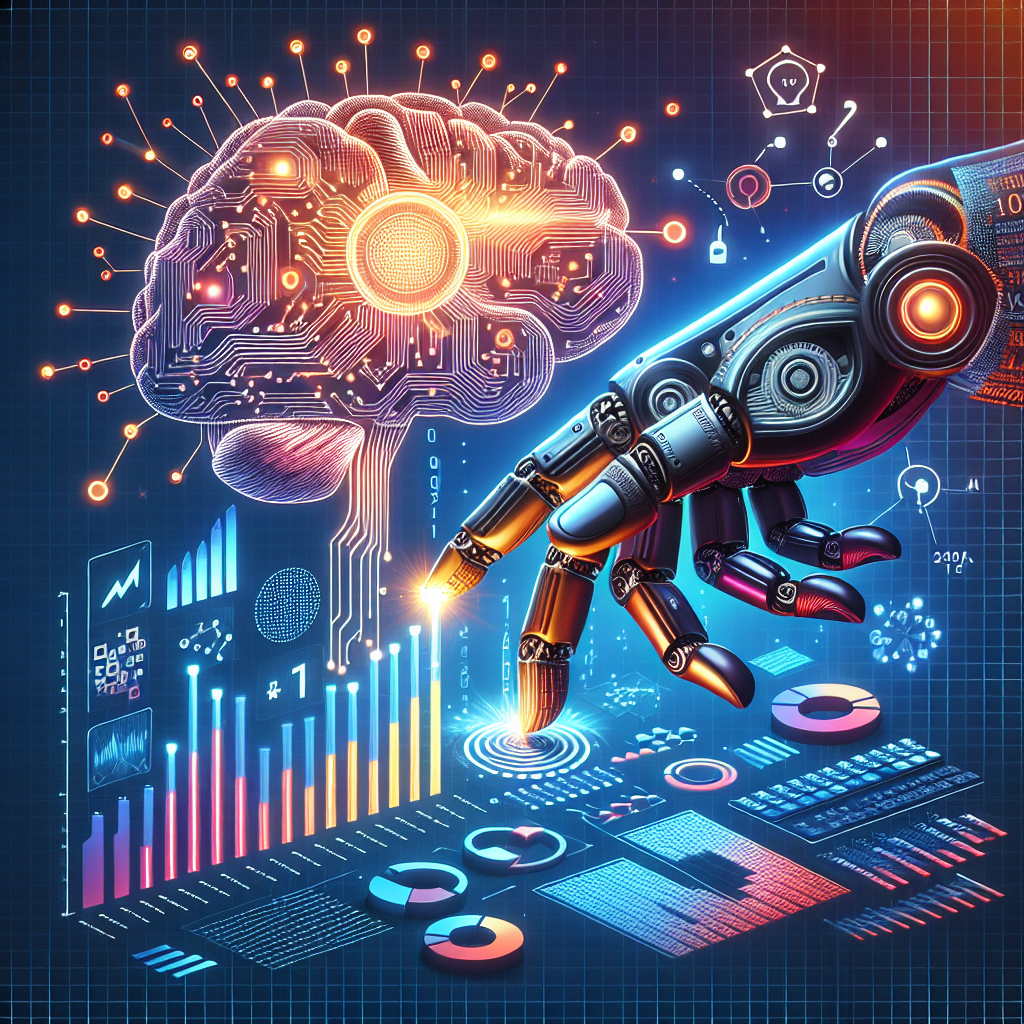Introduction
Artificial intelligence (AI) and big data analysis are two of the most prominent technologies driving the digital transformation of businesses today. When combined, AI and big data analysis have the potential to revolutionize how companies extract insights from vast amounts of data, enabling them to make better decisions, improve customer experiences, and drive innovation.
In this article, we will explore the impact of artificial intelligence on big data analysis, including how AI is being used to enhance the capabilities of traditional data analysis techniques, and the challenges and opportunities that come with integrating AI into big data analysis processes.
The Impact of Artificial Intelligence on Big Data Analysis
Artificial intelligence, particularly machine learning algorithms, has the ability to analyze and interpret large datasets at a speed and scale that is beyond the capabilities of human analysts. By leveraging AI technologies, organizations can extract valuable insights from their data in real-time, enabling them to make faster, more informed decisions.
One of the key ways in which AI is transforming big data analysis is through the automation of data processing and analysis tasks. AI-powered tools can sift through massive amounts of data, identify patterns and trends, and generate actionable insights without human intervention. This not only speeds up the data analysis process but also reduces the risk of human error and bias.
Moreover, AI can enhance the accuracy and reliability of data analysis by detecting correlations and relationships that may be missed by traditional statistical methods. Machine learning algorithms can uncover hidden patterns in data, predict future trends, and even recommend strategies for optimizing business performance.
Another significant impact of AI on big data analysis is the ability to handle unstructured data types such as text, images, and videos. Traditional data analysis tools struggle to process unstructured data, which represents a significant portion of the data generated by organizations today. AI algorithms, however, can extract valuable insights from unstructured data sources, enabling organizations to gain a more comprehensive understanding of their data.
Furthermore, AI can improve the scalability and flexibility of big data analysis processes. By automating repetitive tasks and streamlining workflows, AI technologies can enable organizations to analyze larger datasets, explore more complex data relationships, and adapt to changing business needs more effectively.
Challenges and Opportunities
While the impact of AI on big data analysis is significant, there are also challenges that organizations must overcome in order to fully realize the benefits of these technologies. One of the key challenges is the complexity of implementing AI-powered data analysis solutions. Integrating AI technologies into existing data infrastructure, developing and training machine learning models, and ensuring data privacy and security are all complex tasks that require specialized expertise.
Another challenge is the potential for bias and discrimination in AI algorithms. Machine learning models are only as good as the data they are trained on, and if that data is biased or incomplete, the resulting insights may be inaccurate or discriminatory. Organizations must be vigilant in monitoring and mitigating bias in AI algorithms to ensure that their data analysis processes are fair and ethical.
Despite these challenges, the opportunities that AI presents for big data analysis are vast. By leveraging AI technologies, organizations can gain a deeper understanding of their customers, optimize business processes, and drive innovation. AI-powered data analysis can also enable organizations to uncover new revenue streams, identify market trends, and enhance the overall competitiveness of their business.
FAQs
Q: What are some examples of AI technologies used in big data analysis?
A: Some examples of AI technologies used in big data analysis include machine learning algorithms, natural language processing (NLP), computer vision, and deep learning. These technologies enable organizations to analyze and interpret large datasets, extract valuable insights, and make data-driven decisions.
Q: How can AI improve the accuracy of data analysis?
A: AI can improve the accuracy of data analysis by detecting patterns and relationships in data that may be missed by traditional statistical methods. Machine learning algorithms can uncover hidden insights, predict future trends, and recommend strategies for optimizing business performance.
Q: What are the challenges of integrating AI into big data analysis processes?
A: Some of the challenges of integrating AI into big data analysis processes include the complexity of implementing AI-powered solutions, the potential for bias and discrimination in AI algorithms, and the need for specialized expertise in developing and training machine learning models.
Q: What are the opportunities that AI presents for big data analysis?
A: AI presents numerous opportunities for big data analysis, including gaining a deeper understanding of customers, optimizing business processes, driving innovation, uncovering new revenue streams, identifying market trends, and enhancing overall competitiveness.
Conclusion
The impact of artificial intelligence on big data analysis is profound, revolutionizing how organizations extract insights from vast amounts of data and enabling them to make faster, more informed decisions. By leveraging AI technologies, organizations can automate data processing and analysis tasks, enhance the accuracy and reliability of data analysis, handle unstructured data types, and improve the scalability and flexibility of big data analysis processes.
While there are challenges to integrating AI into big data analysis processes, the opportunities that AI presents for organizations are vast. By harnessing the power of AI, organizations can gain a competitive edge, drive innovation, and unlock the full potential of their data.
Overall, the marriage of artificial intelligence and big data analysis has the potential to transform the way organizations operate, enabling them to extract valuable insights from their data and drive business growth in the digital age.

